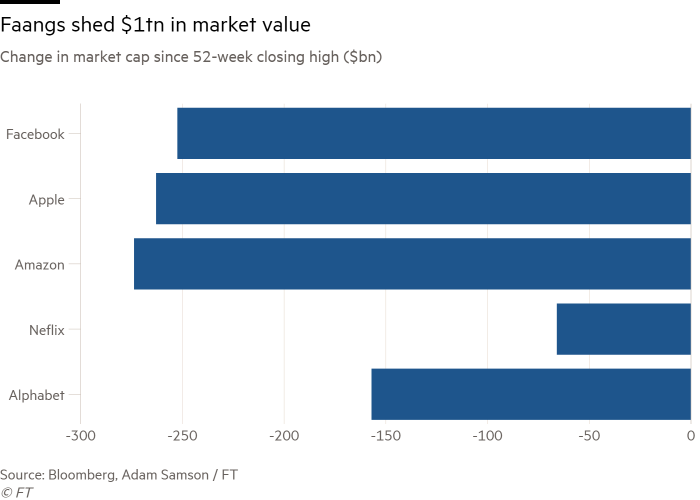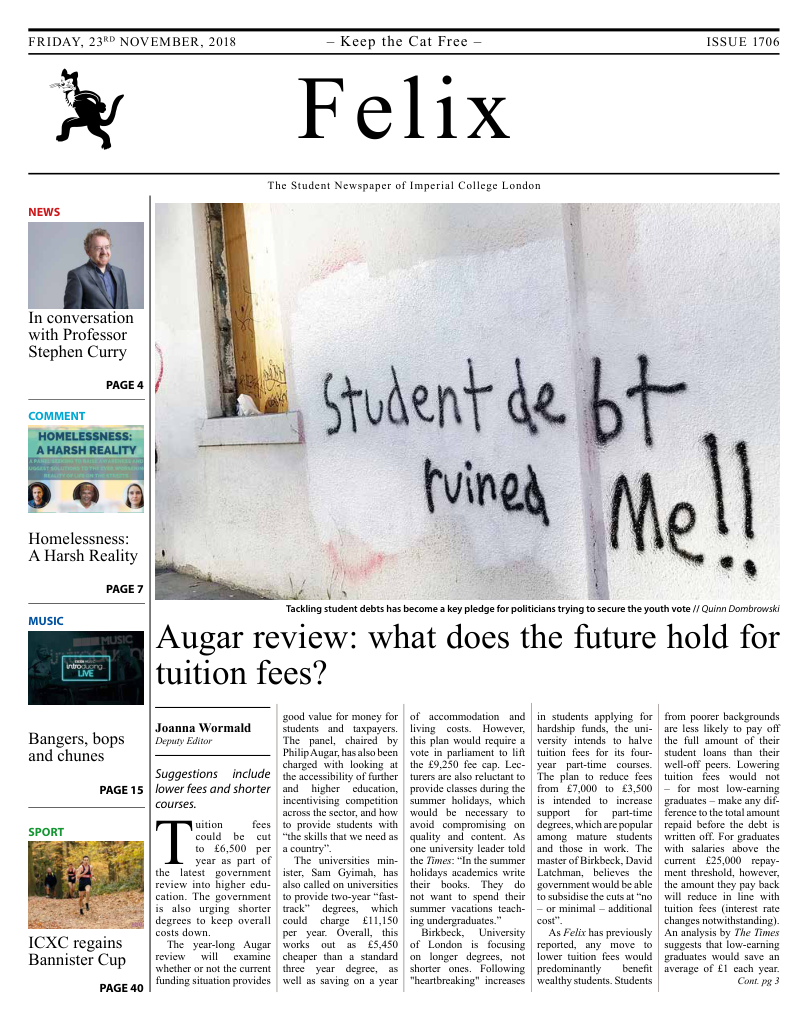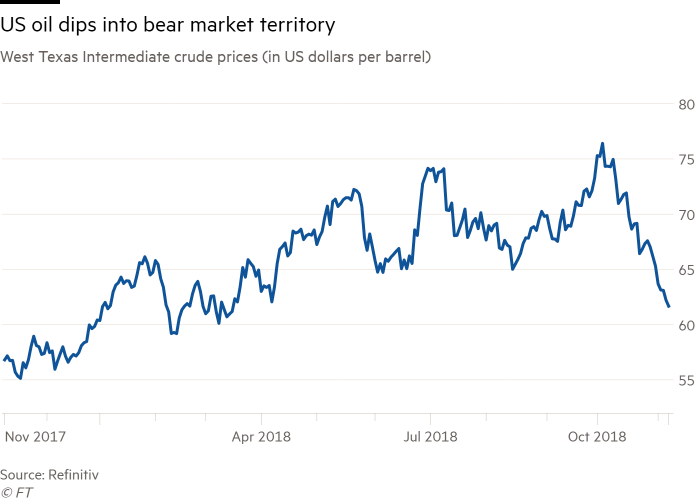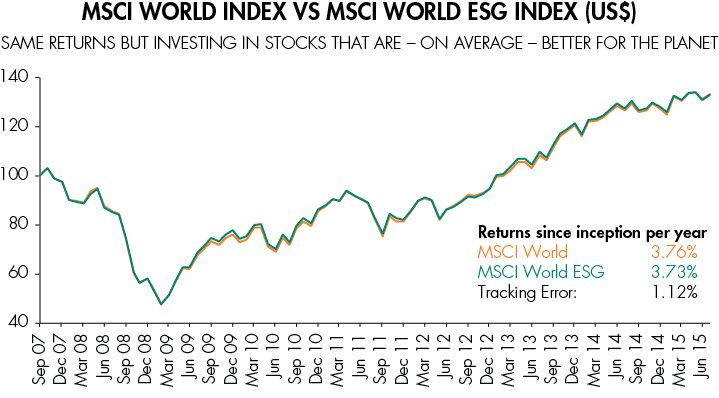Tech sell-off leads to market slump


Turbulence in the global financial markets, particularly in the technology sector, saw equity sell offs, oil prices tumble, and dollar swings this week as concerns over the global economy intensified as investors fear growing trade tensions and weak corporate earnings. FAANG stocks, which had previously powered the recent post crisis bull run, had more than $1 trillion wiped off their market cap leaving the tech heavy NASDAQ benchmark heading for its worst quarterly loss since the turmoil that ensued after the Lehman’s collapse in 2008. Goldman Sachs cut its price target on Apple’s stock for a third time this month from $209 to $182, citing deteriorating Chinese demand and a stronger dollar. Goldman analyst Rod Hall said, “The market now points to Apple being at the limit of their price premium for the iPhone… when pricing power is lost, consumer technology companies tend to lose margins or market share or both”. Consequently, Apple stocks have fallen 24% since the early October high, shedding $265 billion of market value; more the market cap of Pfizer, Wells Fargo and Chevron. This swan dive reverberated through the global markets, with the FTSE All-World index declining 1.7% on Tuesday and the Cboe Global Markets Vix equity volatility climbing well above its long-term average. It also had an unexpected effect on the fixed income market, with US treasury prices edging higher towards the 3% level. Rising US interest rates have tripped up the global economy this year, with a large share of the bond universe losing money in 2018. Although issuance has remained strong, the Bloomberg Barclays Multiverse has lost $1.34 trillion of its market capitalisation this year. This is most likely due to central banks paring back monetary stimulus, stopping programmes such as quantitative easing and rising interest rates. Still parallel declines in both bonds and equities are rare since stocks do better when growth is robust and fixed income markets thrive poor economic conditions. For example, in the 2008 financial crisis when the global equity market shrank by more than $18 trillion, the bond market survived as investors were desperate for the relative safety it offers. These new market conditions have been coined by investors as the unfamiliar “Land of Oz”. Jim Smigiel, head of portfolio strategies at SEI Investments says “It is a new regime. The entropy, the uncertainty, feels more acute right now”. One major worry in this Land of Oz, is how highly rated bonds are beginning to fail to provide their usual safety, making portfolio protection and hedging techniques much harder. Interestingly, the greatest example that the market entering a new regime is how the “buy the dip” technique (the dominant motto of the post crisis environment) is no longer providing returns. According to Morgan Stanley, buying the S&P 500 after a week when returns were negative had been a profitable strategy since 2002, but recently “BTD” traders have been caught out saying “While 2018 is clearly not a year of recession, the market is speaking loudly that bad news is coming”. Although few think a recession is coming as early as next year, Scott Minerd, chief investment officer at Guggenheim Partners, says he is beginning to jog -albeit not run- towards exiting the market saying, “The bottom line is that a recession is coming, and it is imperative to prepare now for the period leading up to the downturn”. It is no surprise then that the Federal Reserve has been increasing rates and shrinking its balance sheet, lifting three-month Treasury bills- the Feds way of increasing its cash reserves.
On a lighter note, some investors note that the recent volatility has been healthy, finally shaking markets out of the dangerous inactivity the Goldilocks post crisis environment, where weak growth kept inflation at bay and money was pumping out of central banks. Additionally, an uncorrelated market provides potential for large alpha return for hedge funds. Although the stock market correction over the past two months has hurt a lot of investors, a small group of bearish hedge funds managers their time has arrived. Crispin Odey, founding partner at Odey Asset Management, has made gains of about 50% this year and 7% this month, making it one of the top performing hedge funds this year. His view is that downwards market momentum is very difficult to halt when it is coupled with expensive equity valuations, “the only way it’s been halted has been lower interest rates, and that’s not an option”.










